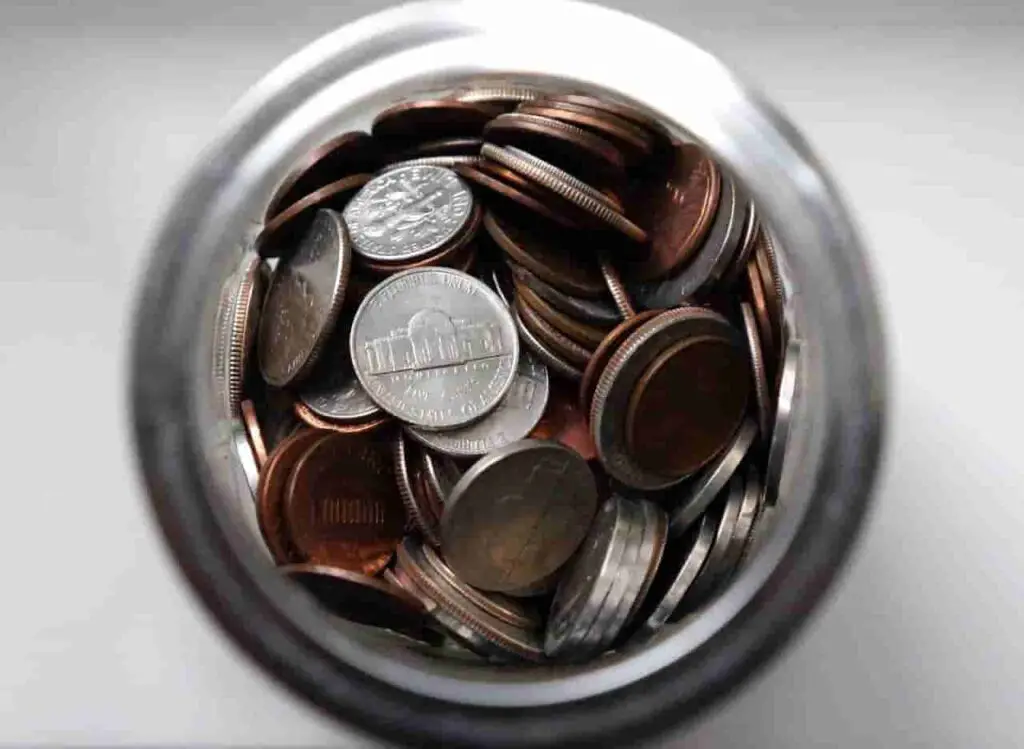When it comes to money, many people often don’t always know what to do with it. It’s easy to let it accumulate in your account, but what if you want something more? Should you save, or should you invest, and is one more important than the other?
Saving money and investing are very different, and a mix of each is crucial for nearly everyone to prepare for their future. To decide how much to invest and how much to save, you will need to consider your future and financial goals. Investing will come with risks but has better growth potential.
In this article, we detail the difference between saving and investing. Each one has its benefits and downsides, and you need to decide which types of investments and savings are right for you. Finally, you can use some extra resources to learn even more about these two financial elements.
The Difference Between Saving and Investing
Many people use the two words saving and investing interchangeably, but there is a big difference. The two differ in how your money can grow, how accessible your money is, and how much you should invest in each category.
Saving
When you save money, you put money aside that you can access at any time. You may need it for an emergency like a car or home repair, or you may be saving up for a large purchase, such as a down payment on a home or a big trip.
Many banks and other financial institutions will give you interest on any money in your savings account. However, since your savings are accessible with little waiting, if not immediately, you will not earn too much money from interest on them.

There is no set rule on how much money you should have saved or save per month when you save money. However, a good guide is to have at least three to six months of expenses in an emergency fund; then, you can save more if you have a big purchase coming up.
With savings, you will never lose money from your account unless you remove it yourself. While the growth is small, the risk is low that it is worth it.
Investing
There are many types of investments, from stocks, options vs. futures, bonds, real estate to retirement accounts and other less known investments. Since there are so many, the timelines and earning potentials vary.
Generally, it will take longer to get your money out of an investment than savings. Some investment types have a challenging period that you must keep your money invested for. These periods can range from a few days to many years, and there will usually be a fee or penalty you need to pay if you access your money earlier than the deadline.
Investing is essential for your future, like retirement, higher education costs for you or your children, and your family’s financial future. You can follow up on what happens if you don’t save for retirement life. When people invest, it is because they want to have more money in the future.
While your money could be stuck in an investment for a long time, even until you retire, your growth will be much higher than if you saved it instead. The earning potential for some of the riskier investments can be extremely high but remember: the higher the reward, the higher the risk. High risk means that you could lose the money you invested with no redos.
Benefits of Saving Money
Saving money is critical because you never know when an emergency will arise, and you will need extra money. If you lose your job, have a car repair, or need to fix something in your home, you will want some extra money on hand to cover the unexpected expenses.

There are other positive things about having savings as well. You will be able to use your savings for a big purchase like a new car, a pool, a wedding, or a big vacation. You can also use your savings to pay off your mortgage early if you choose.
Having an Emergency Fund
If you lose your income job, have a medical emergency, or need an expensive car or home repair, you need an emergency fund. As mentioned above, your emergency fund should cover at least three to six months of expenses, but it can be more if you want to be prepared for anything.
When you calculate how much you need in your emergency fund, you should consider only necessities like your rent or mortgage payment, bills like electricity, internet, and phone, car payments and gas, and your groceries. Anything extra, such as eating out, entertainment, and travel, should not be considered since you will likely stop doing these activities if you use your emergency fund.

Having at least three months is important, but you should aim for six or more, so you’re covered if you lose your job and need time to find a new one. It may take a few months to build up your emergency fund, but that is normal, and it is worth the effort.
Saving for a Large Purchase
If you are looking to buy something big like a home, a car, a new appliance for your kitchen, or even take a long, luxury vacation; you will need to save some money. Like building an emergency fund, you will need to calculate how much you need to save and how long it will take you.
- When you are saving for a large purchase, a good option is to have a separate bank account to put your money into until you have enough. Make sure this account is a standard savings account where you can access your money at any time in the event of an emergency.
With savings, there will not be any fluctuation like you’ll see when investing, so as long as you plan and put a specific amount into savings each week or month, you will meet your saving goals on schedule.
- For example, say you want to buy a new TV which will cost you $1,500. You may have an emergency fund, but you should not use that for your TV. So, you need to save a total of $1,500, and you want to buy the TV in six months. You will need to save $62.50 per week to meet your goal.
As long as you follow this plan, you will have enough money for your TV with no risk of losing your savings. You will not meet your goal if you take money out of your savings or are not consistent in putting the money aside.
Downsides of Saving Money
While savings may seem like a simple, risk-free way to prepare for future financial emergencies or large purchases, there are a few downsides.
Since your savings do not grow as much or as fast as your investments, you will need to save more to reach your goals. Banks typically offer meager interest rates for savings accounts, so even one thousand dollars will only earn about one dollar per year.

Furthermore, since interest rates are so low, your money may lose some value due to inflation. Inflation is higher than the interest rate for most savings accounts, so the longer you leave your money in savings without spending it, the less value it has.
The cost of inflation may not be high enough for you to worry about, like if you are spending your money soon on a large purchase or leaving it in your account as your emergency fund. But, if you plan on leaving money in your savings account for many years, the cost of inflation will be high, and you would be better off investing that money.
You can read financial publications that cover these topics. Some publications to consider would be Kiplinger’s Personal Finance vs. Money Magazine, considered the leaders.
These downsides are worth it to have an emergency fund and to be able to buy big, exciting purchases. You will also have peace of mind if you are risk-averse, knowing that your money is safe. However, if you are looking for high growth in your money, you will likely need to invest instead of saving.
Benefits of Investing Money
Investing is extremely important if you want to have a secure financial future. By investing your money, you will make more to help you retire, pursue a higher education degree, or even prepare your children for financial success.
Anyone Can Benefit From Investing
Investing early on at a young age can be beneficial since your money has a lot of time to grow. If you begin investing in your twenties and let your money grow for a few decades before you retire, you will be able to have a comfortable retirement. You can even use Quickbooks for personal finance to manage your investing.
Even if you start investing later in life, there are still strategies you can use to be successful and allow your money to grow as much as possible before you need it, especially for retirement. You can minimally retire on 500k. The two most popular forms of investing are stocks and bonds.
- Stocks. If you have a lot of time to let your money grow before you need it, you should invest more money in stocks. Even though stocks are riskier to invest in, they will have bigger growth over time. However, you need to leave your money in the stock market for a long time if you want to reap the benefits.
- Bonds. On the other hand, bonds are a safer way to invest your money. Bonds do not have as much growth as stocks, but they are safer since they almost guarantee how much money you can get back, assuming you leave your money invested for the agreed-upon period.
How To Invest
The following chart breaks down how Grow advises you to invest your money between stocks and bonds based on your age. The cash column defines the percentage of your investment fund that you do not invest.
| AGE GROUP | STOCKS | BONDS | CASH |
| 20s-30s | 90% | 10% | – |
| 40s | 80% | 20% | – |
| 50s | 60-80% | 20-30% | 10% |
| 60s | 50-65% | 25-35% | 5-15% |
The percentages in this chart are the maximum that you should invest in each category. You can keep any extra money as cash or put it into investments other than stocks and bonds.
There Are Many Types of Investments
Investments range in many different kinds, with some being very risky, but that can make you a lot of money. Some are very safe. Some investments require little work, and there are investments that you need to monitor and trade constantly. It’s about finding something that works best for you. The pros and cons of hiring an accountant involve investment management.
Retirement
The most important type of investment account to have is a retirement account. You will put money in this, sometimes through your employer, and it will compound until you retire, usually in your sixties. Once you retire, the money you saved when you were younger will have grown, and you can retire with money to live on.
Real Estate
Another type of investment is real estate. You can buy property like a house or condo to expect the value to increase over time. With this method, you will likely need a mortgage, but if you plan to rent or sell soon, you should be able to recoup that money quite quickly.
Another low-risk way to invest in real estate is to invest in real estate crowdfunding. This is a hands-off approach to real estate investing. An investment company will handle all heavy lifting, including developing projects, building, and more.
- Renting is an excellent way to make passive income while you wait for the market to pick back up and for your property’s value to increase. It’s also one of the best ways to invest 50k in real estate passively.
Stocks and Bonds
In the section above, we discussed stocks and bonds. A bond is money you pay to a government or corporation as a loan; then, they pay you back after an end date with interest. During this time, they will have used your money to make further investments that will benefit you both.
Stocks are when you buy ownership of a company, meaning you are entitled to dividends should the company be profitable.

You can buy, sell, and trade stocks as prices fluctuate, but if you want a diverse stock portfolio, invest in a mutual fund where you have a diversified set of stocks and sometimes bonds, so your risk of loss is lower.
Some people wonder if you can make a living by trading Forex all day. Many investors can support themselves this way.
Since there are infinite investments, it is easy to find one that best suits your financial needs and goals. If you need help choosing investments, you can hire a personal investor who will help you with your investment portfolio.
Downsides of Investing Money
Unfortunately, investing has some downsides as well. While the returns on your investments can be high, you can also lose money. The stocks you own could decrease in price, your real estate could lose value, and corporate bonds could be worthless if the company goes bankrupt. Your leverage ratio plays an important role.
If you are unlucky enough for your investment to decrease in value, or worse, become worthless, you can lose most or all of your money very quickly. While the rewards can be high, so can the losses. Decide for yourself how much you want to risk on your investments. Note the comparisons between Quicken vs. Quickbooks for personal finance to help manage your investing.
Saving Money or Investing: Which Is Better?
Whether you save or invest depends on your future and financial goals, but most people will want to have a mix of the two. The following steps will help you decide when to save and when to invest.
Start by Saving
- First, you should have no outstanding debts with high interest rates. High-interest rate debt could include student loans or credit card bills. Saving is the first step for how to build wealth from nothing.
- Then, you will want to get your emergency fund in place. Having an emergency fund is important because you never know when something could happen, like a job loss or home repair that you are not prepared for. Your emergency savings fund should cover at least three to six months of expenses, but you should try to save more to be safe.
- Next, consider your retirement. If you are not currently saving for retirement or saving less than your maximum retirement contribution allows, you will want to start or add to your retirement fund. Most employers offer a 401k or other plan where you can automatically contribute from your paycheck.
- After you have your retirement plan in place, and your emergency fund set, consider if you have any large purchases or events coming up. If you are buying a new house or car, planning a vacation or a wedding, or having a child, you may want to save even more than your emergency savings.
Time To Invest
Finally, you can invest money in something other than a retirement fund. Other investments could be stocks and bonds, a mutual fund, or you can hire someone to create an investment portfolio for you.

If you have the means, land or real estate is always a good option. It’s a great way how to make $2000 a month fast. Chances are, your real estate will increase in value over time. For the time between, renting will help to pay the bills.
Related Questions:
Who Can I Trust With My Investments?
You can trust a lot of people and institutions for your investments, but you should do your research before you commit. First, find out if the government regulates the company. If it is, look at the history to see how effective they are at regulating companies and protecting consumers.
Investment firms registered with the Securities Exchange Commission (SEC) must provide information about their business, which you can use to check with the Better Business Bureau to see if others have had problems in the past. It’s also good to talk to friends or co-workers who might have used them in the past about their experience.
Should I Use a Robo Advisor?
You may consider using a robo advisor, or online investment advisor, especially if you are only saving money and not investing. Robo advisors will help with saving because they can invest your money for you or have it put into an account that automatically saves the money for you.
If you are saving to invest in stocks, bonds, mutual funds, or real estate, then a robo advisor can be helpful once again by giving recommendations based on your goals. However, it is up to you to pick and choose what type of investments work best for your needs and risk tolerance level.
Why would I want to invest my money into the stock market if it can lose value at any given time?
You should invest in the stock market because it is a great way to help fuel you to get out of debt fast and reach your saving and investment goals faster than saving money alone.
The stock market also allows you to diversify your investments, which would mean investing in more than one company. If you only invested in one company, then if that company fails or does not do well financially, your entire saving and investment plan could fail with it.
Investing also comes with tax benefits, which means that part of the money earned from investing goes back into your pocket as income at the end of each year. You will still need to pay taxes on those earnings, but this might be better for some people who are saving so they can afford expenses and have extra cash at the end of each month.
Learn More About Saving and Investing
If you want to learn the basics and more about investing and saving and which one is better for you, below are some good books to help you. These books are available on Amazon and are a great place to start.
- Investing QuickStart Guide: The Simplified Beginner’s Guide.
- This guide is by an investor with more than thirty years of experience investing. You will learn about investing and the different types of investing, how to get started, and how to take your investing to the next level.
- Personal Finance 101: Saving and Investing to Taxes and Loans. This guide will help you set yourself up for financial success with information on saving, investing, and more. You will learn all the basics of personal finance so you can make good decisions when it comes to your money.
Final Thoughts
Saving money and investing your money are two different things, but they can both benefit your financial future and success. Saving will help you with short-term goals and emergencies, whereas investing will help you with long-term goals and retirement.
A mix of both will be important for everyone, but how you decide when to save and when to invest will depend on your financial situation and your future goals.



